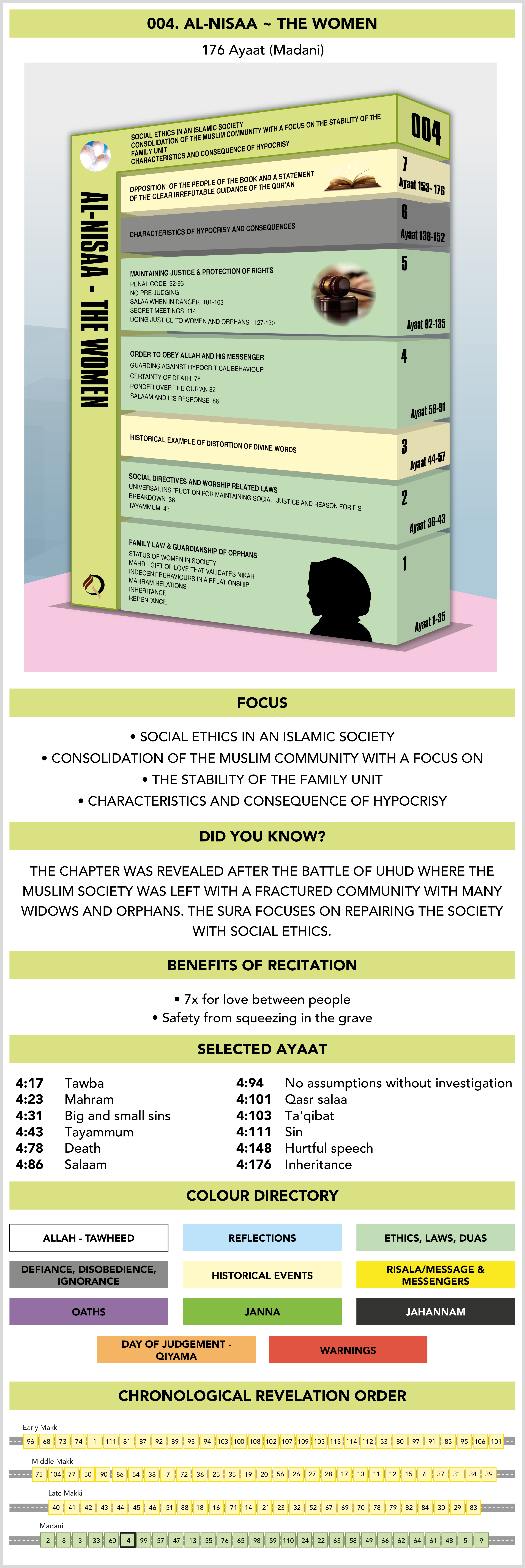The chapter was revealed around 4AH after the battle of Badr. It takes its name from the fact that much of it deals with women and their rights along with various conditions of marriage, marital relations and laws of inheritance.
The chapter is among the most important for Jurisprudence (Fiqh)
It begins with legislative directives concerning family relationships and the guardianship of orphans continuing with social directives and worship related laws. A historical example of those who distorted divine words from the people of the book follows.
The chapter deals with the hypocrites and the Jews of Madina who turned against the Muslims after the battle of Uhud. Sixty verses are dedicated to the characteristics of hypocrisy.
Many verses deal with the Jews who denied Prophet Isa and Prophet Muhammad and the Christians who accorded Prophet Isa as being the son of God. It addresses the Qur’anic view on the life of Prophet Isa and the subject of crucifixion.
The chapter concludes with the discussion of the opposition of the people of the book and the clear irrefutable guiding light of the Qur’an with the final verse again relating to legislative matters. The emphasis is on the inseparable relation between belief and social behaviour based on Divine directives.


